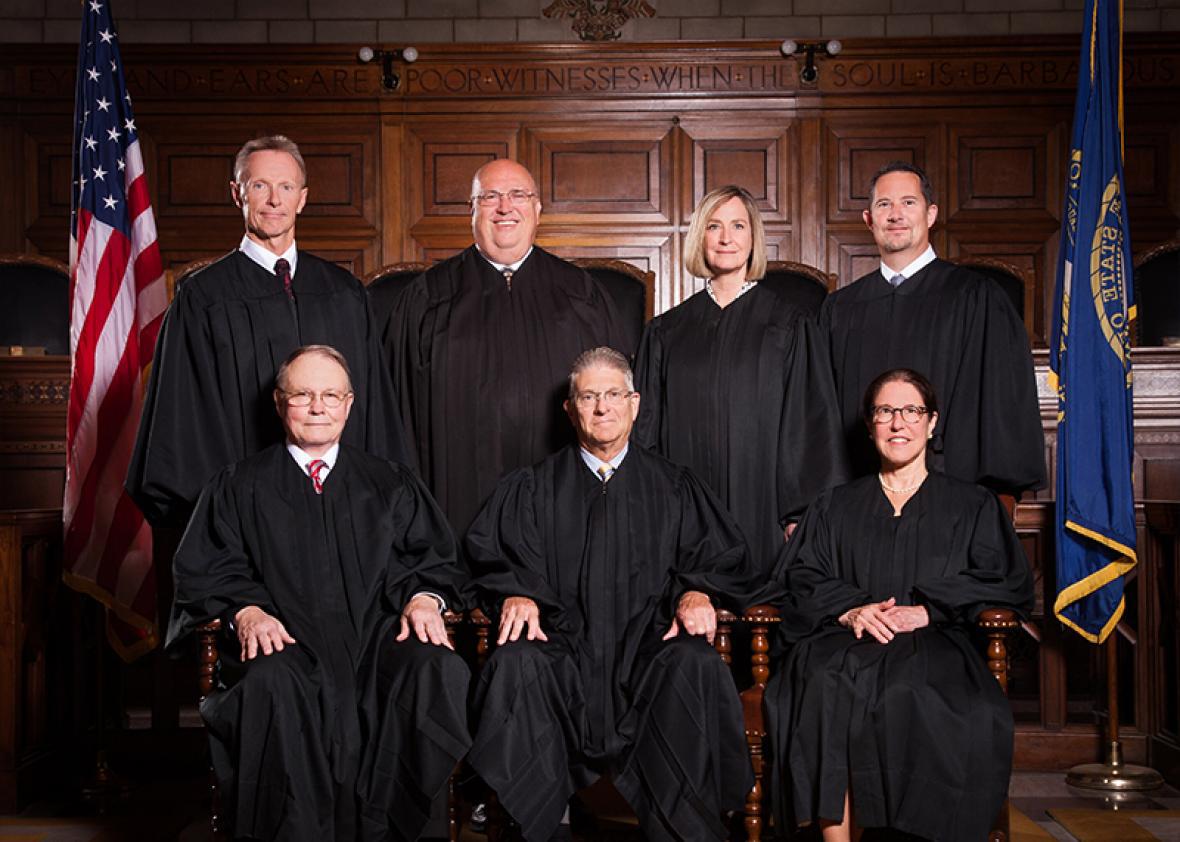In 1995, Nebraska issued the notorious Memo 1-95, which prohibited same-sex couples from fostering children. The policy barred same-sex couples from adopting children as well; under state law, individuals may adopt kids from state care only if they have first been licensed as foster parents—which Memo 1-95 made impossible for “persons who identify themselves as homosexuals.” In 2013, three same-sex couples, represented by the ACLU and Sullivan & Cromwell, filed a lawsuit alleging that the ban violated of their constitutional rights. They won in 2015 when a district court found that Memo 1-95 violated the 14th Amendment’s guarantees of equal protection and due process. Nebraska appealed to the state Supreme Court. It didn’t attempt to defend its ban on constitutional grounds. Instead, it argued that the three couples did not have standing to sue because they hadn’t yet been denied foster care licenses.
On Friday, the Nebraska Supreme Court unanimously rejected the state’s appeal, affirming the lower court decision invalidating Memo 1-95. In his remarkable opinion for the court, Justice John Wright spoke eloquently about the dignitary harms same-sex couples suffer knowing that the state formally bars them from fostering children. It is immaterial, Wright explained, that the state enforces Memo 1-95 only sporadically; same-sex couples suffer a constitutional harm from the mere knowledge that it constitutes official state policy.
“The harm the plaintiffs wish to avoid is not just the possible, ultimate inability to foster state wards,” Wright wrote:
It is the discriminatory stigma and unequal treatment that homosexual foster applicants and licensees must suffer if they wish to participate in the foster care system. The imminent injury that the court redressed was the plaintiffs’ inability to be treated on equal footing with heterosexual applicants.
The memo, Wright continued, remained on the official Department of Health and Human Services website, declaring that “heterosexuals only” need apply to be foster parents. He then introduced a powerful and apt analogy:
It is legally indistinguishable from a sign reading “Whites Only” on the hiring-office door. Memo 1-95 clearly excluded same-sex couples and individuals who identified as homosexuals either from being licensed or from having state wards placed in their homes. There is no dispute that all the plaintiffs were ready and able to be foster parents, were aware of and deterred by Memo 1-95, and would have taken further steps to become foster parents but for the barrier expressed in Memo 1-95. The plaintiffs considered any further action to be futile and did not wish to subject themselves to the humiliation of rejection and the stigmatic harm of unequal treatment.
“The plaintiffs were faced with the unavoidable inability to be treated on equal footing if they wished to pursue being foster parents,” Wright concluded, “and the district court’s order effected an immediate resolution of that imminent and serious harm. We find no merit to the defendants’ narrow view that the action presented a hypothetical harm because the plaintiffs have not shown an ultimate inability to become foster parents.”
Wright’s frank acknowledgment of the animus behind the Nebraska rule is obviously heartening. But equally important is the court’s recognition that the mere existence of formal anti-gay policies inflict grievous constitutional harms upon same-sex couples. The U.S. Supreme Court’s decision in United States v. Windsor was animated by concern about these dignitary injuries, noting that anti-gay laws “degrade” and “demean” same-sex couples.
Justice Anthony Kenedy found that “basic due process and equal protection principles” stand as a bulwark against this kind of invidious discrimination. The Nebraska Supreme Court has now vigorously endorsed Kennedy’s logic, and it deserves credit for doing so. Other state courts may continue to question constitutional protections for same-sex couples. But the Nebraska judiciary, it seems, has accepted the fact that the 14th Amendment shields the rights of sexual minorities throughout the nation.
